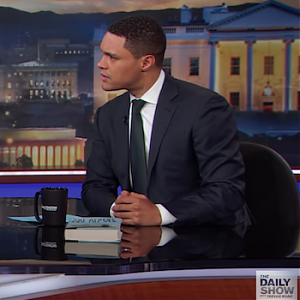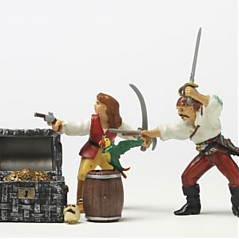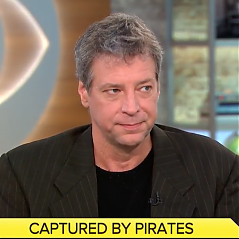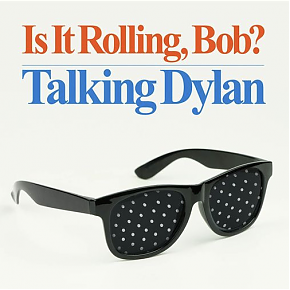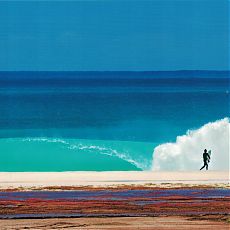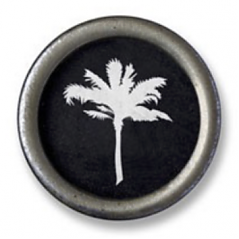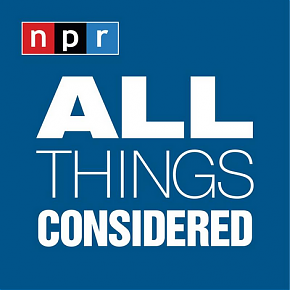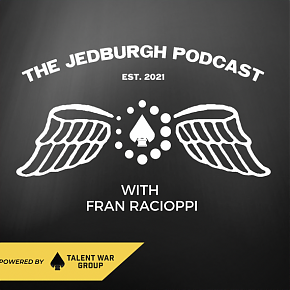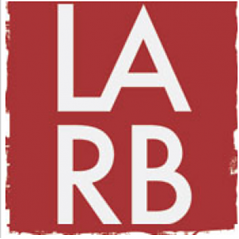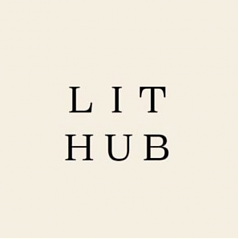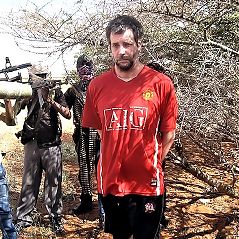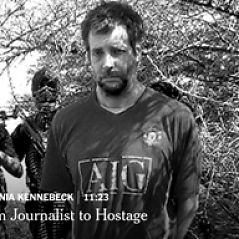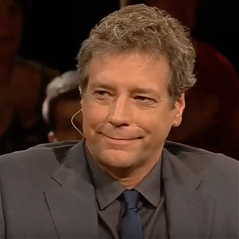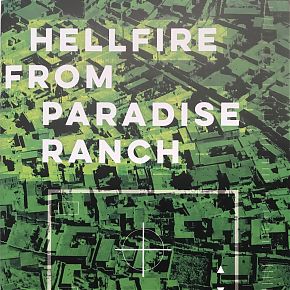It’s Called Soccer
The right word for the game
June 2006
Americans live on what amounts to an enormous island, defended on two shores by the sea, and we’ve evolved a few marsupial traditions that nobody else understands. One is “American football.” Another is the word “soccer” — which Americans apply to the World Game for reasons that have more to do with the history of elite British schools than we might know or want to admit.
The rest of the world may call it football, but in America we know the difference. To us football is hard and head-knocking, rough and working-class, while “soccer” is a civilized thing played without helmets on a pretty lawn.
Right?
Well, hear me out. “Soccer” is the right word for the game.
It derives from 19th-century British slang for “Association Rules” football, a kicking and dribbling game that was distinct from “Rugby rules” football back when both versions were played by British schoolboys. The lads who preferred the rougher game seceded from Britain’s fledgling Football Association in 1871 to write their own rules, and soon players were calling the two sorts of football “rugger” and “soccer.”
“The main dispute,” writes the Australian historian Bill Murray in The World’s Game: A History of Soccer, “was over handling (the ball) and hacking (or kicking)” each other. When rugby players seceded from the Football Association, one English club “wanted to retain hacking, claiming that its abolition threatened the essential ‘manliness’ of football, and sneered that such sissy reforms would reduce the game to something more suited to the French.”
The dispute traveled overseas to elite American schools. North American boys played two kinds of “football” until a decisive three-game series in 1874 between Harvard and Montreal’s McGill University. Harvard played the “Boston game,” which was like soccer; McGill played rugby. “The Harvard team was surprised when the McGill players kicked the ball and subsequently ran with it under their arms,” according to a page on the McGill University Web site. “The Harvard captain pointed out politely that this violated a basic rule of American football. The McGill captain replied that it did not violate any rules of the Canadian game.”
The teams decided to play by one set of rules, and then another. Harvard players thought handling the ball was fun. A year later they convinced Yale to play something closer to rugby, and “American football” became a tradition.
That, at least, is the modern history of the game. But endless variations of soccer have existed around the world for centuries, so the “football” fraction may have a point. Before the rules of either rugby or soccer were codified, Europeans used to kick inflated bull or sheep bladders around — “a ‘mob’ game of village against village, lacking written rules,” according to Murray. The Burmese played “chinlone” with a woven-cane ball. The Mayans, who had rubber trees, played “pok ta pok” by knocking a rubber ball around with their hips, knees, and feet. FIFA acknowledges a game developed about 2,500 years ago in China — “cuju,” played with a feather-filled leather ball — as the earliest prototype. “Football was an essentially popular game,” writes Murray, “and the name originally referred to any ball game played on foot rather than on horseback.”
But it took an empire to spread the British rules. Wherever England sent its workers and schoolboys, some version of “soccer” took hold. British rail workers brought the British kicking game to Argentina. British colonials formed soccer teams in Hong Kong to “civilize” the Chinese. British oil workers brought it to Romania, according to Murray, and it spread from there to the Ottoman and Russian empires. Privileged English students in Swiss or German schools also started soccer clubs. But after the game caught on in some of these countries — like Germany — there was a nationalist reaction. Throat-clearing conservatives from the German gymnastics movement of the 1870s thought Fusslümmelei (or “football loutishness”) was unhealthy for the nation’s kids. But the English tide couldn’t be turned, and Murray writes that some countries tried to save their national honor by convincing themselves that soccer was less “quintessentially English” than rugby.
Not that an empire alone could forge a universal game: Cricket has been planted just as far and wide by British colonials, after all, but it’s not nearly as popular. An age-old urge to kick a ball may account for the world domination of “soccer.”
The grand irony is that people from the British Isles don’t know what to call it. “Football” is just not as accurate a word in the English language. It’s also less used. Officially or unofficially, the game is referred to as soccer in the US, Australia and Canada, a combined English-speaking population of around 350 million — compared with the UK and Ireland’s 65 million. But the word is solidly associated with the United States, and many Americans, perversely denigrate the game as effeminate and “European.” They hold up American football as the “real man’s” game. A semantic reaction from Britain is only to be expected.
But Americans are also wrong about their own version of football. It’s not a tough or blue-collar game. It’s almost a pure hand-me-down from snooty, upper-crust schools in England, via snooty, upper-crust schools on the American East Coast. Global soccer — learned by scrappy kids around the world on beaches, cow pastures, and ghetto lots — is something else.
Michael Scott Moore
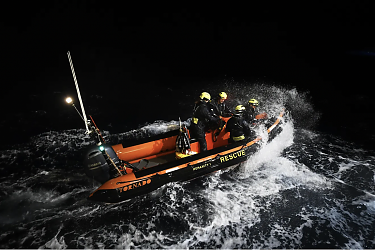
Rafts of the Medusa
Why every day on the Mediterranean is a new scandal for Europe. For both Foreign Policy and Die Zeit.
California’s Attempt at Land Reparations
How land seized from a Black family 100 years ago may be returned. The Bruce’s Beach story from a hometown angle, for The New Yorker
Day of the Oprichnik, 16 Years Later
The novelist Sorokin, the president Putin, his man Dugin, and the war in Ukraine. For n + 1.
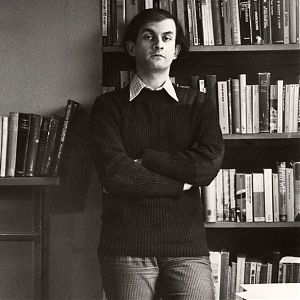
The Rushdie Narrative
Knife and the crumbling ground beneath free speech
There Must Be Some Way Out of Here
An essay on Bob Dylan, “All Along the Watchtower,” and Somali pirate captivity.
That Mystic Shit
The life of Lou Reed in two biographies

Cambodian Seafarers Talk About Pirates
Mike visits Cambodia for The New Yorker to talk about a harrowing shared experience in Somalia
The Muslim Burial
Cambodian hostages remember digging a grave for one of their own. A sequel chapter to The Desert and the Sea
The Real Pirates of the Caribbean
Adventure journalism in Southern California. A travel essay for The Paris Review.

Antifa Dust
An essay on anti-fascism in Europe and the U.S., for the Los Angeles Review of Books
Was Hitler a Man of the Left?
A book that helped Republicans in America lose their damn minds.
Ghosts of Dresden
The Allied firebombing of Dresden in 1945 destroyed the baroque center of what Pfc. Kurt Vonnegut called, in a letter home from Germany, “possibly the world’s most beautiful city.”
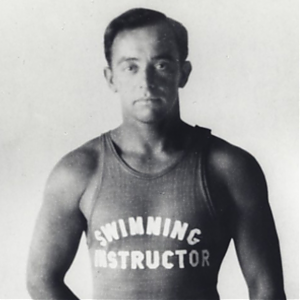
George Freeth, Biographed
The first academic treatment of America’s surf pioneer. Also, was Freeth gay?
It’s Called Soccer
Americans live on what amounts to an enormous island, defended on two shores by the sea, and we’ve evolved a few marsupial traditions that nobody else understands.
Tilting at Turbines (in the Severn River)
The morning was clear and cold, with frost on the church steeple and the cemetery grass. I had a quick English breakfast at a white-cloth table, in my wetsuit, and drove to Newnham, a village on the Severn River in Gloucestershire, parking near the White Hart Inn.

The Curse of El Rojo
I’d packed the car lightly — a bag of clothes, a bag of cassette tapes, a backpack of books, a few essential tools.












